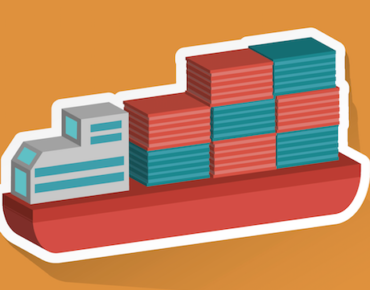Docker Gets Upgrade as Container Market Heats Up

(mamanamsai/Shutterstock)
As concerns grow over the slow migration of application container technology beyond backend development, container leader Docker is rolling out the latest release of its enterprise container service for managing Linux and Windows applications. The release adds support for mainframe applications, with all three environments running on hybrid IT infrastructure.
Docker asserts that its upgraded container service addresses the growing number of enterprise applications that include data analytics and other new features. It also seeks to address multiple technology stacks and disparate on-premise as well as private and public cloud infrastructure spreading through corporate datacenters.
The container leader also emphasized that its management platform unifies Linux, Windows and mainframes apps, including new support for IBM (NYSE: IBM) z Systems. The intent is to combine the management of current applications with emerging micro-services.
The result is "a consistent operational experience from application composition to networking to security across Linux, Windows and mainframe applications while managing all three in a mixed cluster," the company said Wednesday (Aug. 16).
Docker also pitched its approach for orchestrating diverse applications types, asserting that this unified approach would help enterprises centralize security policies, access controls and other functions without having to change code or business processes. New capabilities for creating pre-defined security and access policies, the San Francisco-based company asserted, could help automate parts of the software supply chain that is shifting to so-called low-code approaches.
As container deployments have ramped up, Docker and other vendors also have rolled out registries design to manage the growing number of container images. The latest version of the Docker platform includes new image management features along with automated image promotion used by DevOps teams to define key requirements before moving applications to production.
Indeed, orchestration is among the mostly competitive technology areas in the accelerating container market as Docker and Google-backed Kubernetes slug it out for IT hearts and minds.
Elsewhere in the expanding container ecosystem, the software development platform GitHub announced this week it has deployed application containers in Kubernetes clusters. Kubernetes is the main container orchestrator rival of Docker's Swarm tool.
GitHub managers noted in a blog post that the initial migration to Kubernetes was limited to stateless workloads, but they now plan to experiment with "patterns for running stateful services on Kubernetes."
Meanwhile, container upstart CoreOS is expected to roll out extensions to Kubernetes container management later this week.
The Docker roll out comes as cloud rivals Google (NASDAQ: GOOGL) and Microsoft NASDAQ: MSFT) jockey for position in the container market with competing cloud container tools. Microsoft announced an Azure container tool last month designed to speed access cloud containers. The tool would compete against the Google Container Engine for it cloud platform.
Related
George Leopold has written about science and technology for more than 30 years, focusing on electronics and aerospace technology. He previously served as executive editor of Electronic Engineering Times. Leopold is the author of "Calculated Risk: The Supersonic Life and Times of Gus Grissom" (Purdue University Press, 2016).










